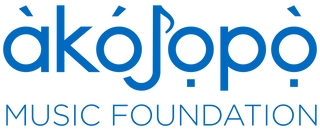
Navigating Nigeria’s arts and nonprofit sector requires a deep understanding of the country’s volatile economic landscape, shifting regulations, and pervasive corruption. My journey in arts administration and ethnographic research has revealed how organizations and creative entrepreneurs must adopt “guerrilla tactics” to survive—leveraging networks, adapting to challenges in real time, and finding unconventional solutions to persistent barriers. Navigating the Nigerian business environment—especially within its nonprofit and creative industries—requires strategic flexibility and resilience, as it is shaped by unpredictability and informal gatekeeping, where access to resources or opportunities is often controlled by a select few. Below, I outline the adoption of “guerrilla tactics” to establish a sustainable arts non-profit that not only survives but thrives in Nigeria.
Overcoming Bureaucratic Hurdles
During my time in Nigeria, I experienced firsthand how even the most basic administrative tasks are often obstructed by excessive bureaucracy and informal gatekeeping. For example, when I attempted to open a Nigerian bank account for Àkójọpọ̀, a process that should realistically take no more than two hours—or, at worst, a single day—stretched on for months. The delays weren’t due to a lack of documentation, but rather the absence of the “right connections.” What should have been routine became a frustrating waiting game, shaped by opaque requirements and shifting expectations.
This experience reflects the broader challenges that many nonprofits and arts organizations in Nigeria face when trying to register, apply for grants, or access institutional support. In a system where personal relationships often outweigh official procedures, progress frequently hinges on who you know and what you’re able to negotiate behind the scenes.
To navigate these realities, I adopted a kind of “guerrilla mindset”—strategically leveraging personal relationships and informal knowledge to move things forward. The lesson from the field here is clear: in environments where institutional inefficiencies are normalized, access to networks and financial flexibility can determine your ability to make progress. Without these, even the best intentions and strongest plans risk stagnation. My experience at the bank was not just a logistical hurdle—it was a case study in the kind of adaptive, relationship-driven leadership required to build and sustain an organization in a complex environment.
Financial Constraints and Strategic Adaptation
One of the most pressing issues for Nigerian nonprofits and arts organizations is financial sustainability. Limited funding forces many to offer free services or struggle with ticket sales, making it difficult to secure stable revenue. Through interviews with nonprofit leaders and cultural workers, I found that successful organizations adopt adaptive financial strategies, such as diversifying income streams beyond international donors, forming strategic partnerships, and leveraging digital crowdfunding. Additionally, enhancing financial management capacity is crucial—many organizations struggle due to weak accounting systems and lack of financial oversight. Addressing these gaps ensures long-term stability and reduces vulnerability to internal fraud or mismanagement.
Technology as a Game-Changer
While Nigeria’s infrastructure poses significant challenges—such as unreliable internet and inconsistent power supply—many organizations are using technology to bypass these limitations. Nonprofits and arts groups are increasingly leveraging social media for fundraising, audience engagement, and advocacy. Digital payment platforms also help artists and administrators streamline transactions, reducing reliance on cash and mitigating financial risks. However, while technology offers solutions, organizations must be strategic in implementation, ensuring accessibility for diverse communities.
Corruption as a Constant Barrier
One of the most persistent themes in my research is the role of corruption in shaping nonprofit and arts administration. From informal “facilitation fees” required to process event permits, to coercion from law enforcement targeting public gatherings, government corruption complicates even the most basic operations. Interviews with nonprofit leaders revealed that tackling corruption requires a multifaceted approach: maintaining transparency in financial management, forming alliances with reputable organizations, and developing internal policies that minimize opportunities for exploitation. The guerrilla mindset—a flexible, resourceful, and often unconventional approach to problem-solving—is essential here. It’s not just about resisting corruption, but about strategically navigating a system where ethical dilemmas are an everyday reality and formal channels often fall short.
Strategic Partnerships: The Key to Sustainability
One of the most effective strategies for nonprofits and arts organizations in Nigeria is forming strategic partnerships. Collaborating with both nonprofit and for-profit entities allows organizations to pool resources, reduce costs, and build more sustainable programming. This approach not only expands their reach but also strengthens their resilience in a challenging environment. Leaders I interviewed consistently stressed the importance of aligning an organization’s vision with the needs of the community, ensuring that partnerships go beyond transactional exchanges and are grounded in mutual trust, shared values, and long-term impact.
Lessons from the Field: The Future of Arts Administration in Nigeria
Through my research, I have identified key strategic management practices that can help Nigerian arts organizations and nonprofits navigate these challenges:
-
Diversifying Funding Sources – Moving beyond international donors to local sponsorships, ticketed events, and membership models can provide more financial stability.
-
Strengthening Financial Management – Developing financial literacy among arts administrators is crucial to prevent mismanagement and ensure transparency.
-
Leveraging Technology – Digital tools can enhance efficiency, but strategic implementation is necessary to overcome infrastructure barriers.
-
Navigating Corruption Proactively – Ethical flexibility, transparency, and strategic alliances can help mitigate the impact of corruption on daily operations.
Conclusion: Guerrilla Tactics for Long-Term Success
My journey in arts administration and nonprofit research in Nigeria has reinforced the idea that success in this environment requires more than just talent or passion—it demands strategic resilience. The ability to adapt, think outside the box, and form strategic partnerships is what separates thriving organizations from those that struggle to survive. My research aims to highlight these guerrilla tactics, providing insights that can help arts administrators, nonprofit leaders, and cultural entrepreneurs build sustainable models despite the many challenges they face. In Nigeria’s evolving arts and business landscape, unconventional thinking is not just an advantage—it is a necessity.
To read the full paper and view the presentation with all citations and references, please visit the following link: ARNOVA



Daniel Kumapayi is a Public and Arts Administrator committed to social impact and cultural initiatives. He holds a Master of Public Administration in Nonprofit Management from the University of Illinois Chicago and a Bachelor of Music in Music Education from the University of Michigan. His work in Equity, Diversity, and Inclusion (EDI) within arts administration is informed by his Nigerian-American identity and the concept of ikigai. He presented research on strategic management for Nigerian arts nonprofits at the 2024 ARNOVA Conference and was named the 2025 Equity, Diversity, and Inclusion Fellow with the Association of Arts Administration Educators (AAAE). As the Founder and former Executive Director of Àkójọpọ̀, he supports Pan-African musicians and fosters cultural exchange. He also teaches music at Aldridge Elementary School in Chicago.

